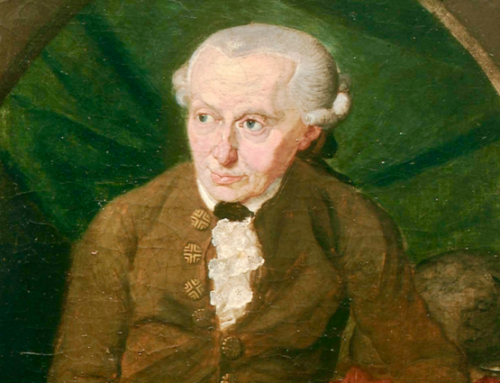What enabled men like Athanasius, Augustine, and Aquinas to discover their “why” in ages past can still transform young men and women today…
 Over the years, I have discovered that nearly every time I come across an especially pithy, insightful, beautifully-expressed quotation, it seems to be attributable either to Winston Churchill or Mark Twain.
Over the years, I have discovered that nearly every time I come across an especially pithy, insightful, beautifully-expressed quotation, it seems to be attributable either to Winston Churchill or Mark Twain.
Recently, I came across this observation, from Mark Twain (of course):
The two most important days in your life are the day you are born and the day you find out why.
The first of those makes intuitive sense, but what could it possibly mean to discover “why” you were born?
That “why,” I would argue, is at the heart of classical Christian education. God infuses each one of us with a unique complement of gifts and attributes. No two are the same. Finding out what those gifts consist of and how to make the best use of them is essential to a happy, productive, meaningful life.
Sadly, much of American education has come to focus on the acquisition of a handful of facts and skills. We tend to establish a standardized test, teach exclusively to that test, and congratulate ourselves on getting a school-full of uniquely gifted students to pass the exact same test.
Rather than processing them like identical widgets on an assembly line, a better way would be to help each student discover his or her “why” and then encourage them to cultivate it.
At The Saint Constantine School, we read many of the greatest books ever written. We discuss and wrestle with the deepest, most abiding questions confronting humans for the last 2500 years (or more). But the goal is not to fashion a giant Great Books cookie cutter and press out conforming graduates by the dozens.
On the contrary, these rich and challenging texts often require students to confront themselves and come to a better understanding of the world and their place in it. As a result, thanks be to God, no two TSCS graduates end up looking alike!
Today, far too many private and charter schools throw a little Latin into the curriculum and call themselves “classical.” Stir in some extra homework, and suddenly you have a classical school, right?
Well, no.
A genuinely classical education steeps students in the same fertile dialectic that engaged the ancient Greek and Roman philosophers, the early Church Fathers, and most of the greatest minds of Western Civilization. What enabled men like Athanasius, Augustine, and Aquinas to discover their “why” in ages past can still transform young men and women today.
A student’s years at Saint Constantine are an opportunity to discover his or her “why” and what to do about it. Armed with that knowledge, as Mark Twain suggests, a young adult stands on the threshold of a life of beauty and significance. That is an important day, indeed.
Republished with gracious permission from The Saint Constantine School (2017).
The Imaginative Conservative applies the principle of appreciation to the discussion of culture and politics—we approach dialogue with magnanimity rather than with mere civility. Will you help us remain a refreshing oasis in the increasingly contentious arena of modern discourse? Please consider donating now.







Leave A Comment